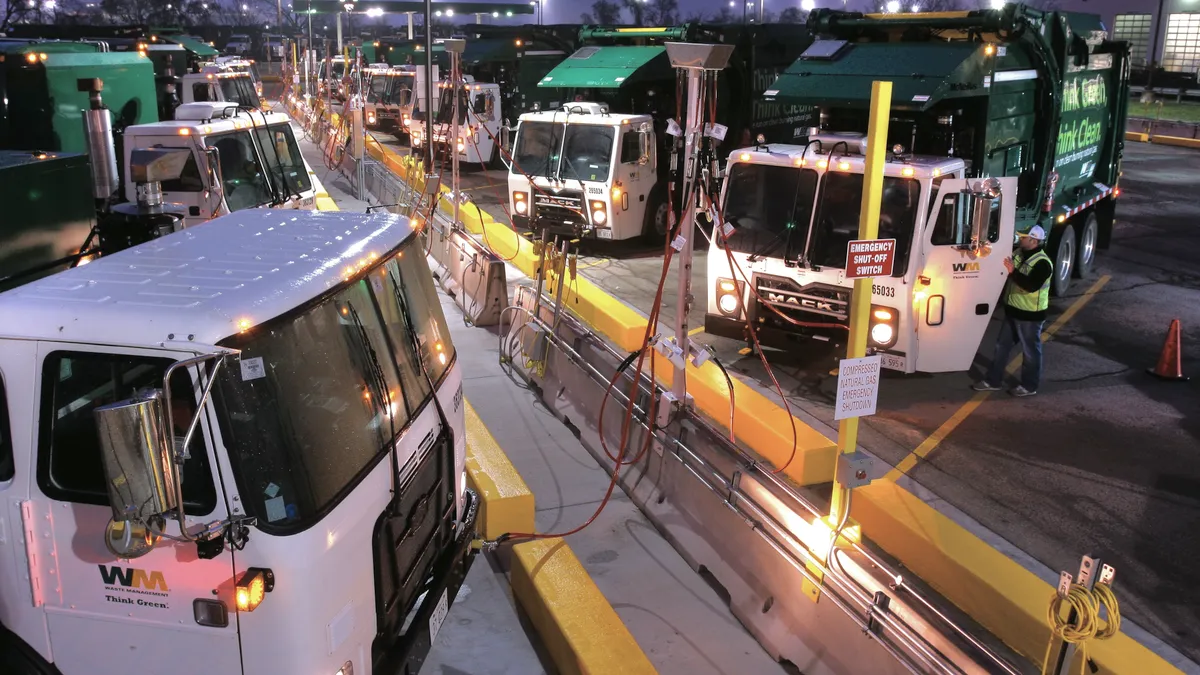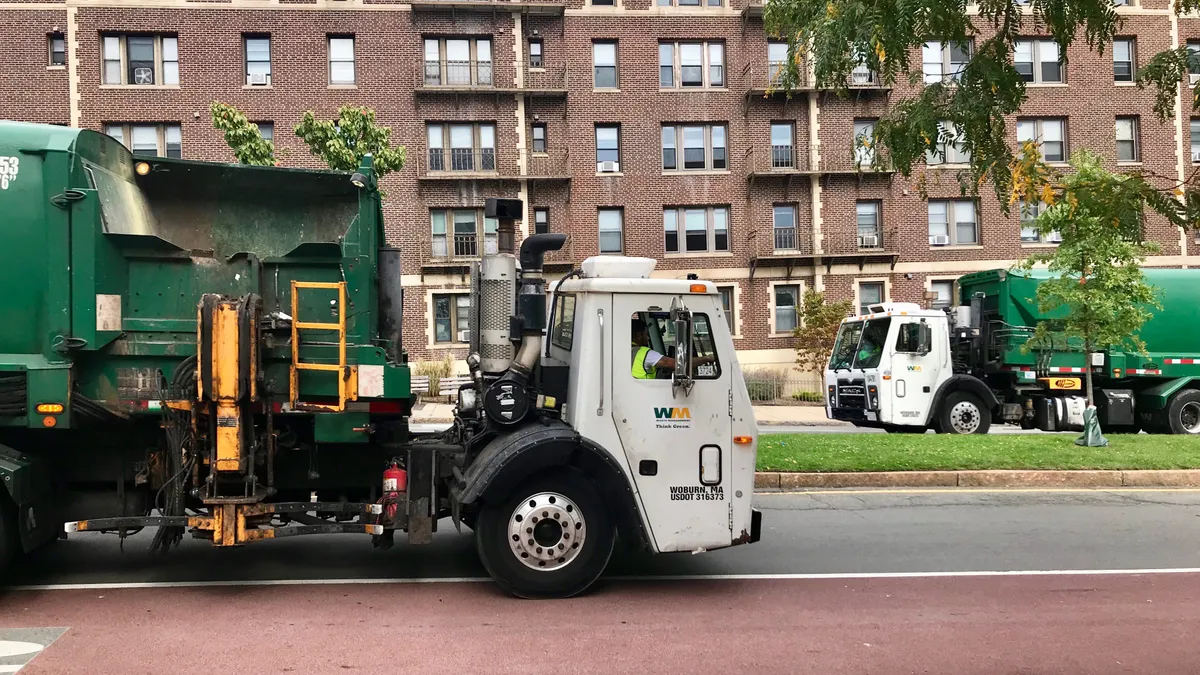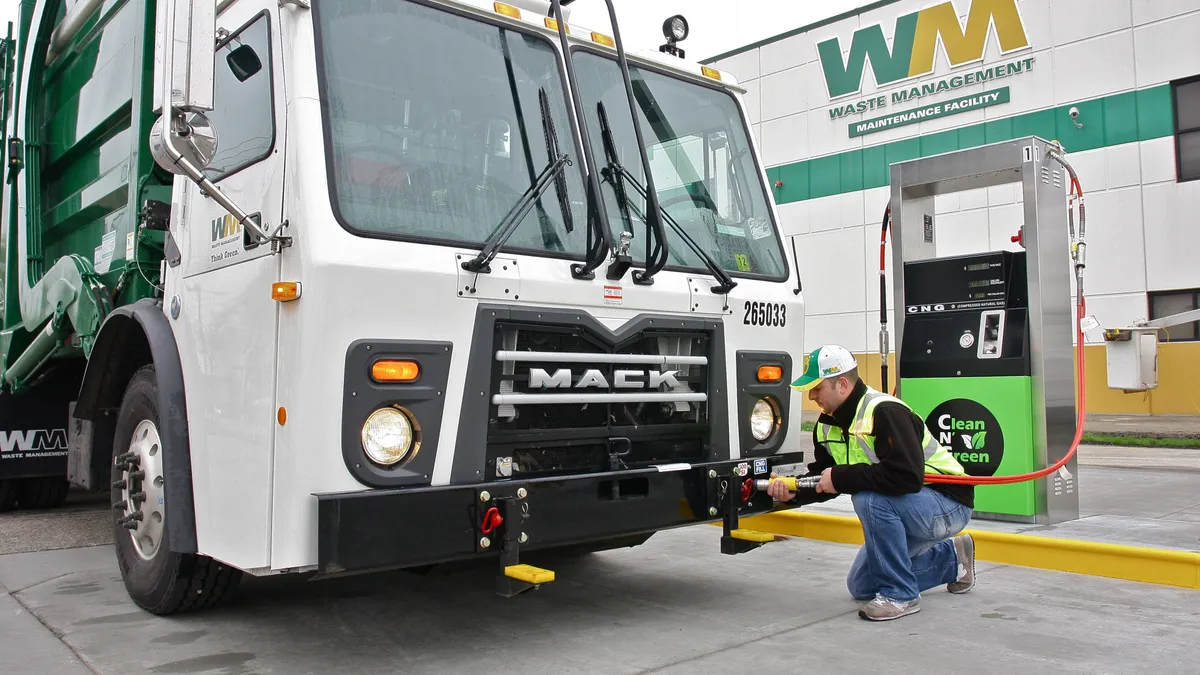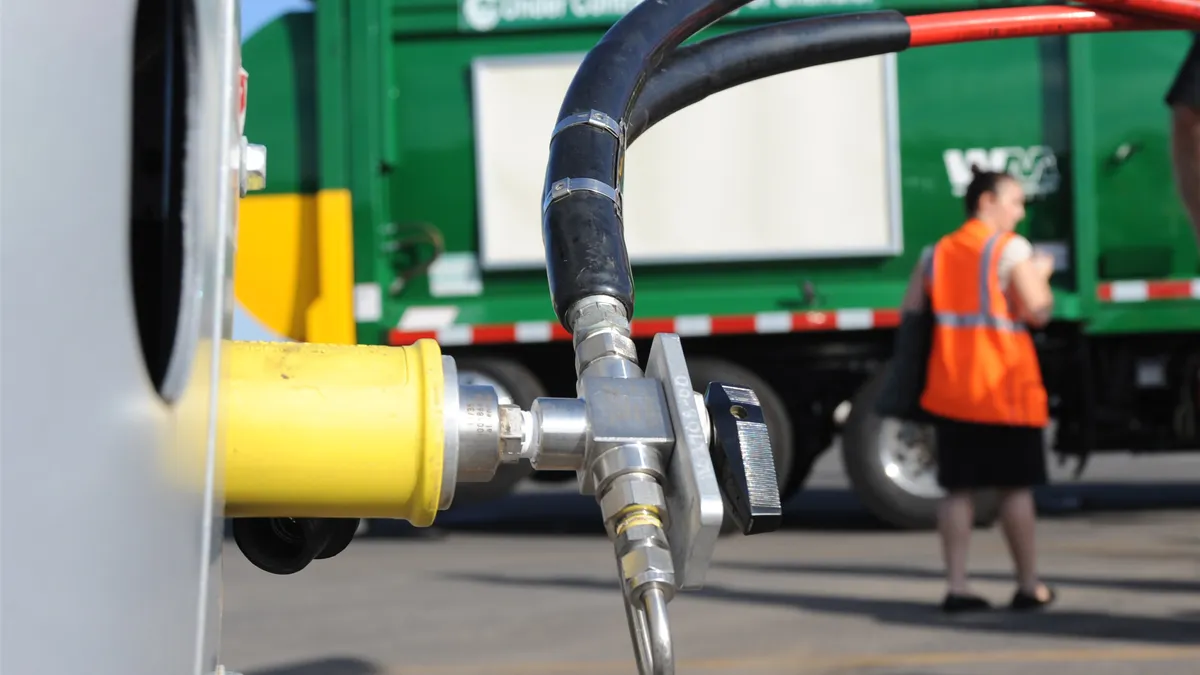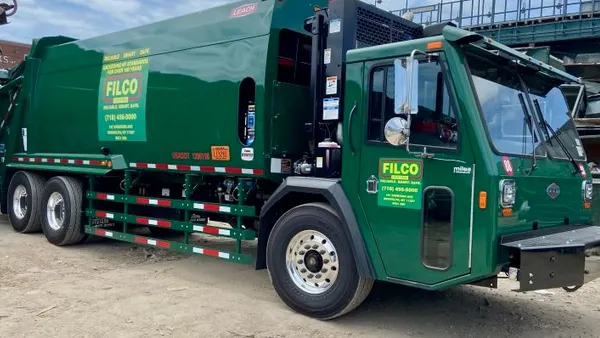Q1 Earnings
| Revenue | $4.112B |
| Year-Over-Year Change | 10.27%▲ |
| Net Income | $421M |
Waste Management took what executives and analysts described as a rare step of raising guidance after the first quarter, due to ongoing pandemic recovery trends and higher projected benefits from the Advanced Disposal Services acquisition.
Annual revenue is now expected to be up by 12.5% to 13%, compared to original guidance of 10.75% to 11.25%, as local economic activity continues to rebound.
"Volumes really have not recovered fully, especially in those three high margin lines of business – commercial, landfill and industrial," said CEO Jim Fish during the company's Tuesday earnings call. "Pricing, and landfill pricing in particular, we think is a strength for the quarter and will continue to be in the next couple of quarters."
Recovery update
- Collection and disposal volumes were down 2.3% year over year, an improvement from a 2.7% decline in the fourth quarter. Executives said most of the volume headwinds were offset by pricing and yield increases.
- Chief Operating Officer John Morris reported an estimated 72% of the commercial yards lost due to the pandemic have now been recovered and net new business turned positive in the quarter.
- Waste Management also reported its highest residential yield since 2008 at 4.2%, as the company continues renegotiating contracts to more favorable terms. This happened even as pricing indexes used in some contracts declined, but Fish said a potential rise in inflation could boost those arrangements in the future.
After passing the anniversary of initial pandemic effects on first quarter earnings in 2020, Waste Management is sticking with its bullish outlook as economic activity expands around the country.
In recent months, Fish said the company has seen volume improvement in previously cited regions such as Florida, Arizona and Texas due to higher hospitality activity. Lagging areas such as California, New England and the upper Midwest are now also rebounding. Eastern Canada remains the most affected, due to pandemic measures, and parts of New York and Michigan are still seeing slower recoveries. While Chief Financial Officer Devina Rankin said bad debt has not been a major issue, potential business closures make it unclear how much of the remaining lost volume may return.
The challenge Waste Management and others in the industry are now facing is how to adequately staff up to manage this recovery. In Fish's opinion, the extension of higher unemployment benefits may be limiting the labor pool and that could remain a factor until later in the year. Rankin noted this is also affecting third-party transfer and disposal costs.
Fish said this challenge has been less of an issue for the company so far, because it opted to cut back on overtime rather than lay people off in the depths of the pandemic. But labor could become a larger issue once existing capacity is maximized. As was the case before the pandemic, Waste Management said it plans to be selective in terms of pricing for what it goes after.
“We don’t need to take all new volume coming," said Fish. "We’ll take the best of the new volume and we’ll manage accordingly.”
ESG and Biden updates
- As part of what it described as a growing focus on environmental, social and corporate governance (ESG) initiatives, Waste Management announced Tara Hemmer will become chief sustainability officer in July. Her role as senior vice president of operations will be filled by Rafael Carrasco, currently an area vice president.
- The company hinted at the potential for greater capital spending on recycling and energy projects in the future, noting its fifth renewable natural gas facility will open next year. Close to 70% of the company's routed fleet now runs on some form of natural gas, including vehicles from Advanced, and more expansion is planned.
- Fish had limited comments when asked about the Biden administration, other than reiterating prior remarks about potential business opportunities from new environmental regulations. He was supportive of any future transportation-focused infrastructure spending, saying "we end up being a beneficiary both on the collection side of our business and on the disposal side."
Looking ahead
- The Advanced transaction is now projected to yield $150 million in synergies, up from a prior estimate of $100 million, with much of that coming this year. Morris said key efficiencies come from routing, volume internalization and procurement changes.
- Waste Management is sticking with the bottom end of its annual M&A spending range, at around $100 million, with no plans referenced for sizable deals. Still, Fish said the pipeline has started growing and concern about higher capital gains taxes might lower valuation expectations among sellers.
- As the annual outlook improves, Waste Management is also raising the upper end of its free cash flow guidance to $2.425 billion and anticipates using much of that to enrich shareholders. During the first quarter, $247 million went to dividends and $250 million was spent on stock buybacks.


